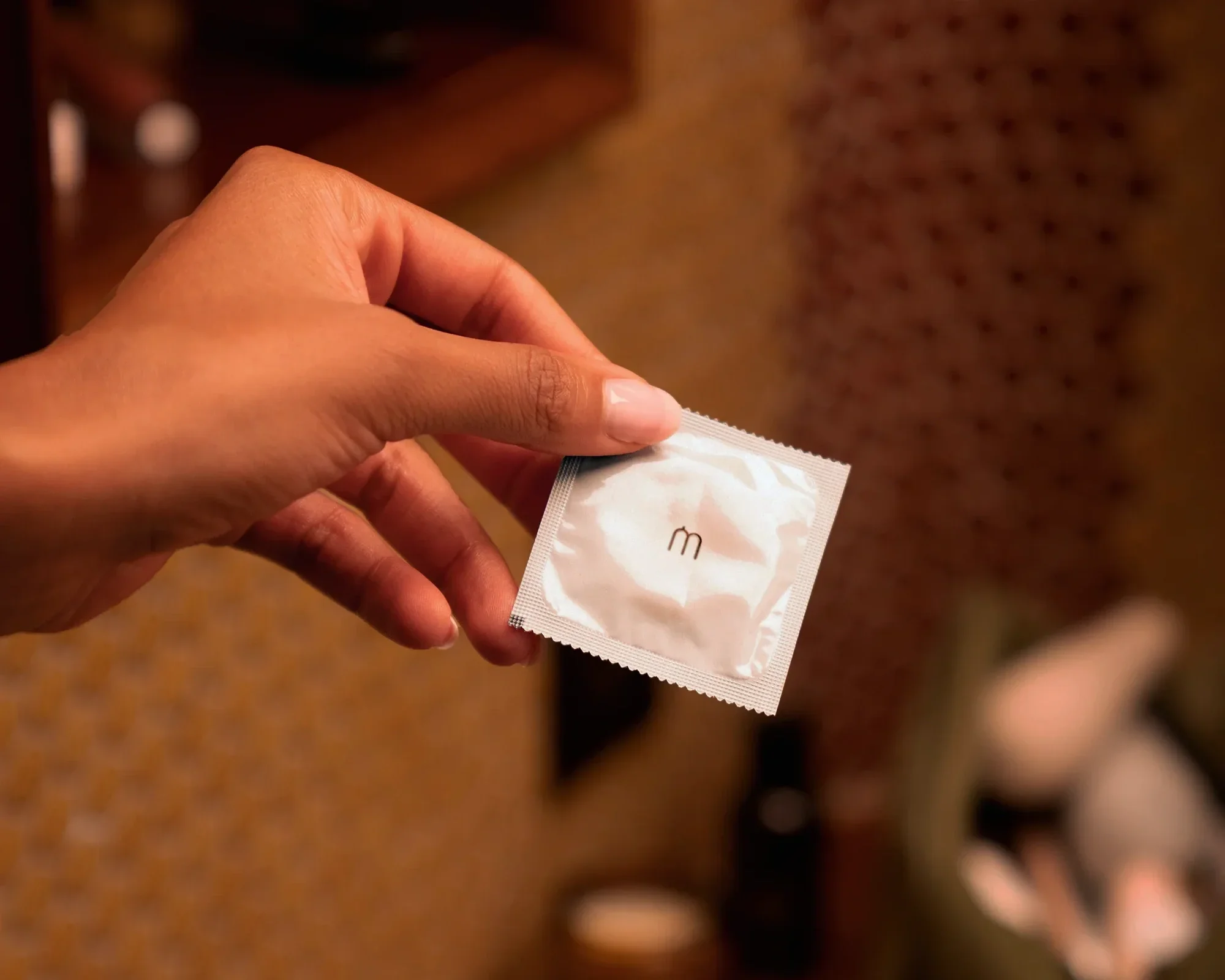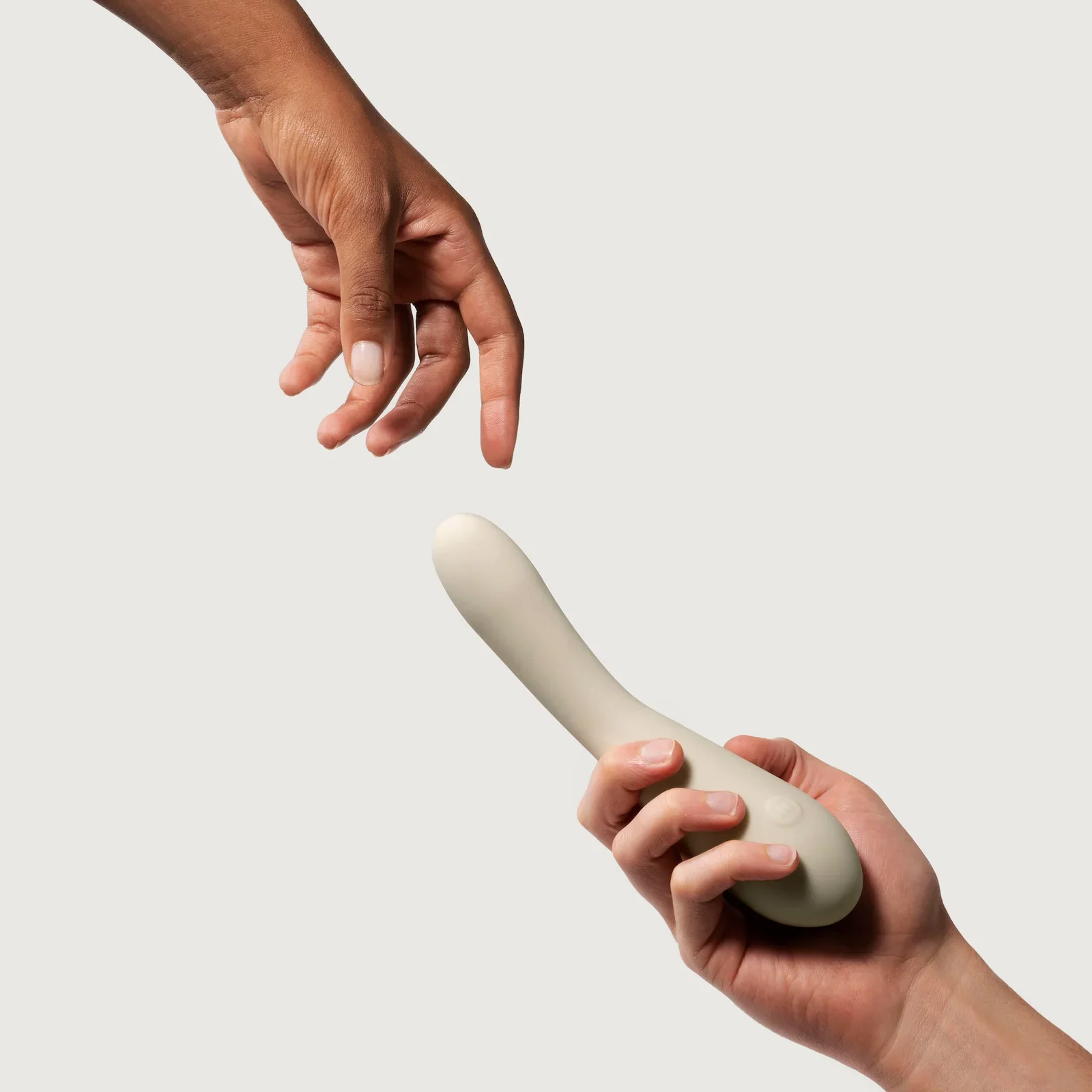When it comes to sexual and reproductive health, the conversation often goes straight to policy and education. But brands, too, have a responsibility to shape culture and dismantle stigma. Few understand this better than Éva Goicochea, creative director, CEO, and founder of Maude, a company redefining intimacy through sleek, inclusive, and approachable products for sexual wellness and intimacy.
Goicochea’s path to building Maude was grounded in public health. Growing up in New Mexico, one of the states with the lowest rates of condom usage, she witnessed firsthand the consequences of limited sex education. After working in healthcare policy in California, she realized systemic change would be painfully slow. Instead, she saw an opportunity to create impact culturally through design, branding, and products that make intimacy accessible, equitable, and stigma-free.
We spoke to the powerhouse founder about her journey to creating Maude, the intersections between health and culture, and why brands must play an active role in normalizing sexual wellness.
“Shame and stigma have made intimacy products harder to access. But I think it comes back to equity and basic health education.”
Can you share about your journey towards creating Maude?
I had a circuitous route to get here. To go back to the beginning, I was born in New Mexico, one of the worst states for condom usage. From a pretty young age, I was exposed to a lot of teenage pregnancy. I moved to California when I was nine, but that experience stuck with me. I'm also a great-aunt at 42. I have older brothers who had babies young, and their kids had kids young, so I've always been aware that sex education is not widely offered. Culturally, we're still quite behind, and that has always stayed with me.
Fast forward: I studied marketing in school but ended up becoming a legislative aide in California, where I grew up. Specifically in healthcare. I was very excited about public health, but I always thought commercially: we're not going to change sex education state by state. That would take forever. How can [I] make an impact?
I went on to work in product companies, but that question stayed with me. Eventually, I decided to launch Maude. It was born out of a desire to create cultural change through inclusive design, branding, and products offering clear solutions. Education is one thing, but a product that makes you feel comfortable talking about intimacy can have a huge impact. You’re then able to take that comfort and put it into action. That’s the journey.
You’ve had a huge amount of growth lately with your launch in Sephora. You’ve also started creating probiotics. Can you tell us about that pivot?
Supplements were always part of the plan. From the start, people asked if we’d move into pharmaceuticals, but Maude’s DNA is intimacy, both emotional and physical. We didn’t want to go clinical, but we did see the connection between everyday health, sleep, mood, vitamin deficiencies, urinary health, and intimacy. Those daily factors impact comfort and desire. So we developed supplements, but we’re not trying to be a supplement company with 50 products. We just wanted to fill key gaps.
That makes sense. Sexual health is connected to whole-body health.
Exactly. We also wanted our supplements to be inclusive. For example, we created a libido-support gummy. It’s not an instant solution or a blue pill you take and suddenly you're in the mood. It has to be taken consistently, over time, to see benefits.
When did that launch?
We launched [the libido gummies] a couple of years ago and it was so successful we couldn’t keep it in stock. But we’re not trying to be a pill or gummy company. We just don’t want to leave you without a complete solution.
There's a tech component to the work you do with vibrators and sex toys. Do you see more opportunities in that space?
Our focus is on four core areas: scent, skin, supplements, and sex. When it comes to vibrators, I don’t believe in over-tech-ifying them. I think the language of “sex tech” often makes intimacy feel less human. And calling them “toys” reduces them to novelties, which limits advertising and reinforces stigma. We see them as essential tools for pleasure and gender equity.
For most women and people with clitorises, stimulation is necessary for orgasm. It’s not a novelty, it’s foundational.
That raises a larger point about how products are framed. Like how lube is sometimes seen as scandalous when shared with young people publicly.
When we say sex ed for all, people are like, “Oh my god, but kids shouldn’t be learning about that. And I'm like, I'm not telling your kid to learn about this.”
We live in a very conservative country, so pushing forward sexual freedom and liberation is a fight. You're doing this in a way that feels approachable.
Shame and stigma have made intimacy products harder to access. But I think it comes back to equity and basic health education.
How has the cultural climate in the U.S. affected your business?
We’ve stayed true to who we are. We don’t borrow causes or trends. We focus on intimacy itself—not abortion, not family planning—that’s not our lane. That’s helped us remain relatively unscathed, though advertising has been difficult.
Our ads are very inclusive, kind, and smart and we still have problems. But we finally got through and they let us advertise. But I always say, when the door is shut, I don't line up at the back of the line. I go find the window. I think you just have to be quiet and sneak in the window.
Zhang, Yufei, et al. "The Impact of Sexual Health Education on Adolescent Sexual Health: A Systematic Review." Frontiers in Public Health, vol. 12, 2024, p. 11107081. doi:10.3389/fpubh.2024.11107081.
“New Mexico has the 10th highest teen birth rate in the US (Mississippi is the highest with 27.9 per 1,000, and Massachusetts is the lowest with 6.1 per 1,000)”






